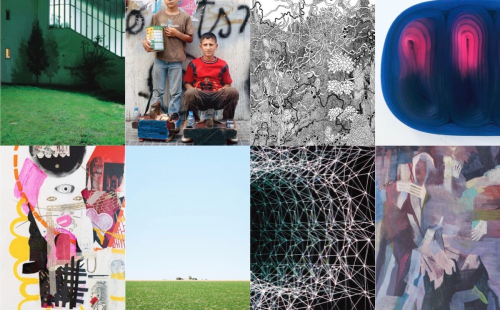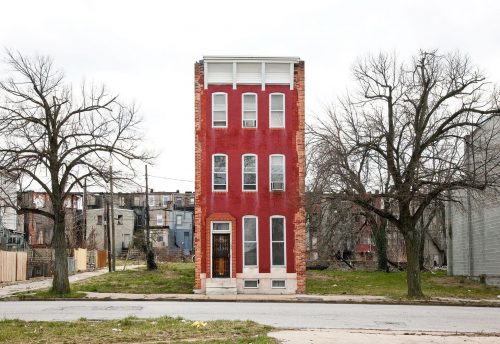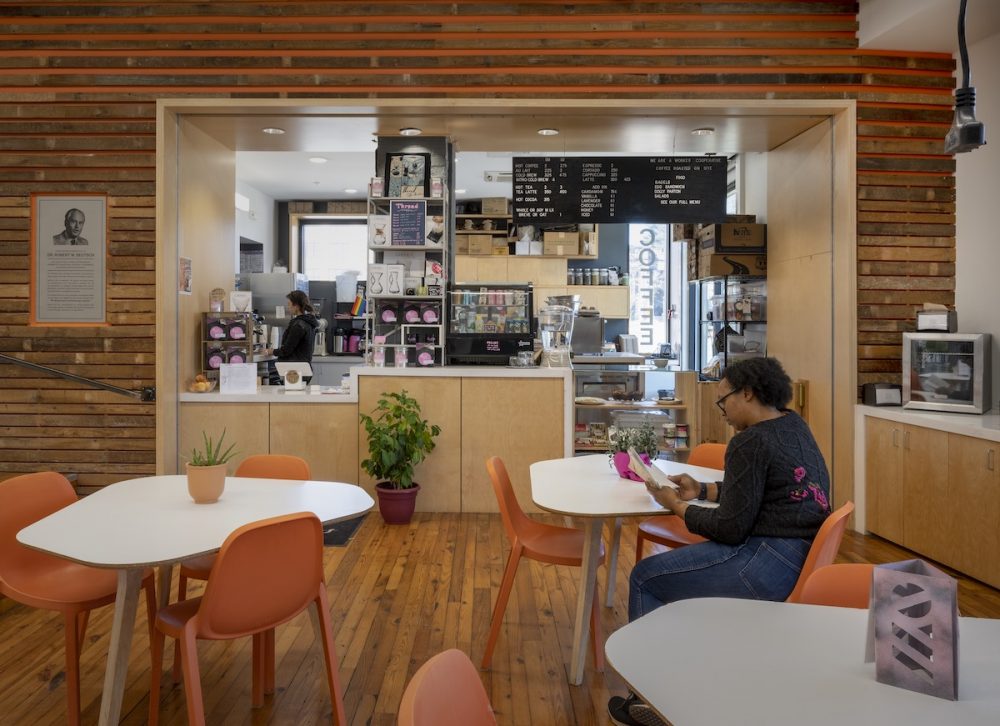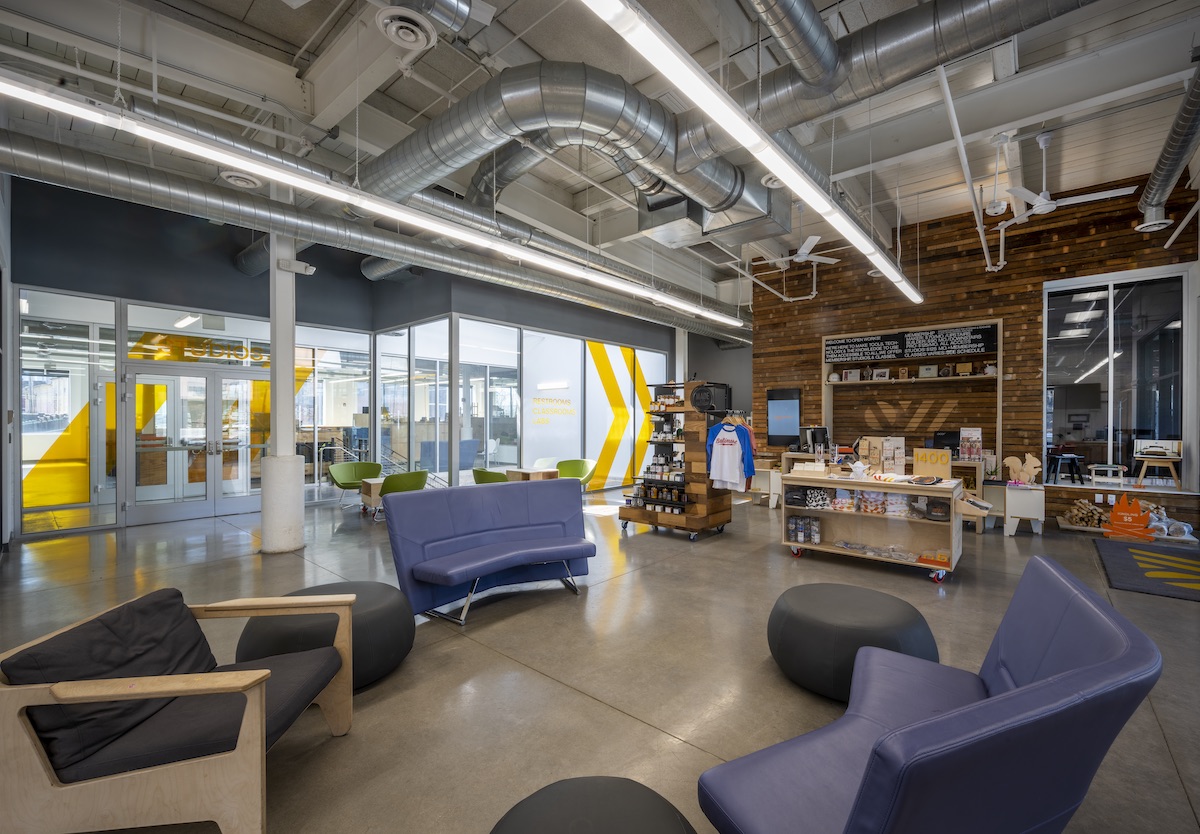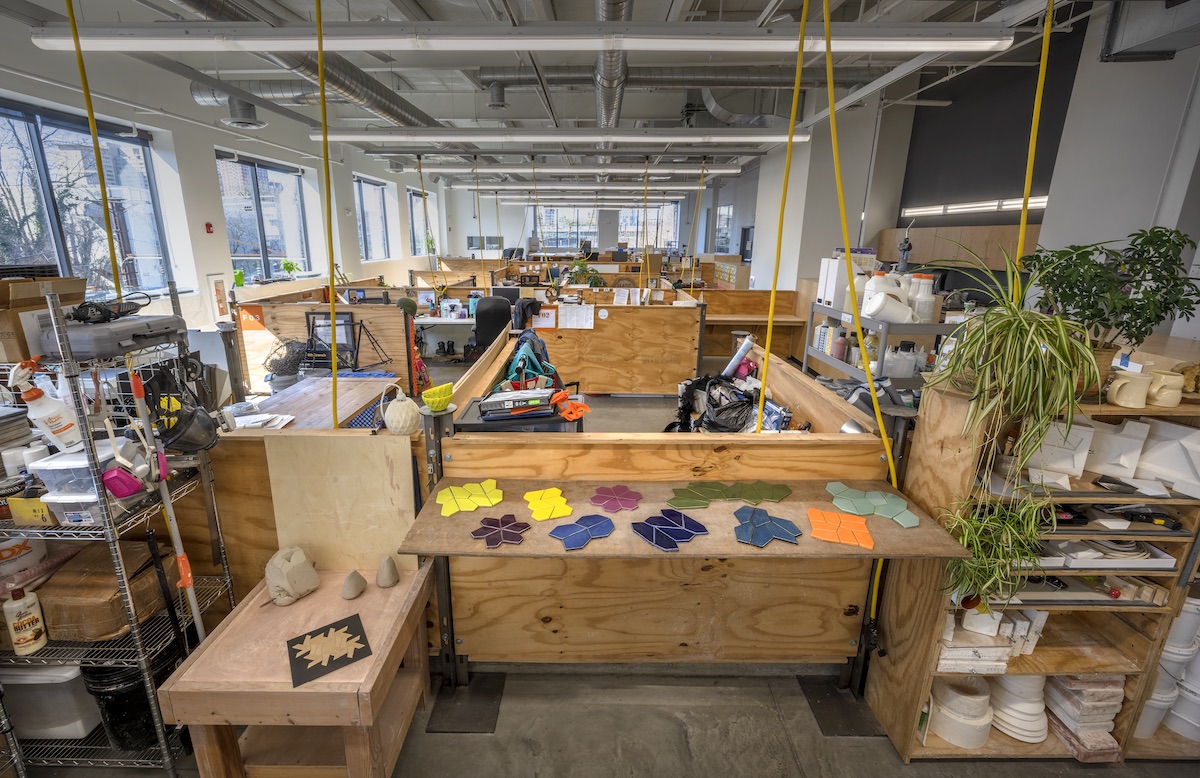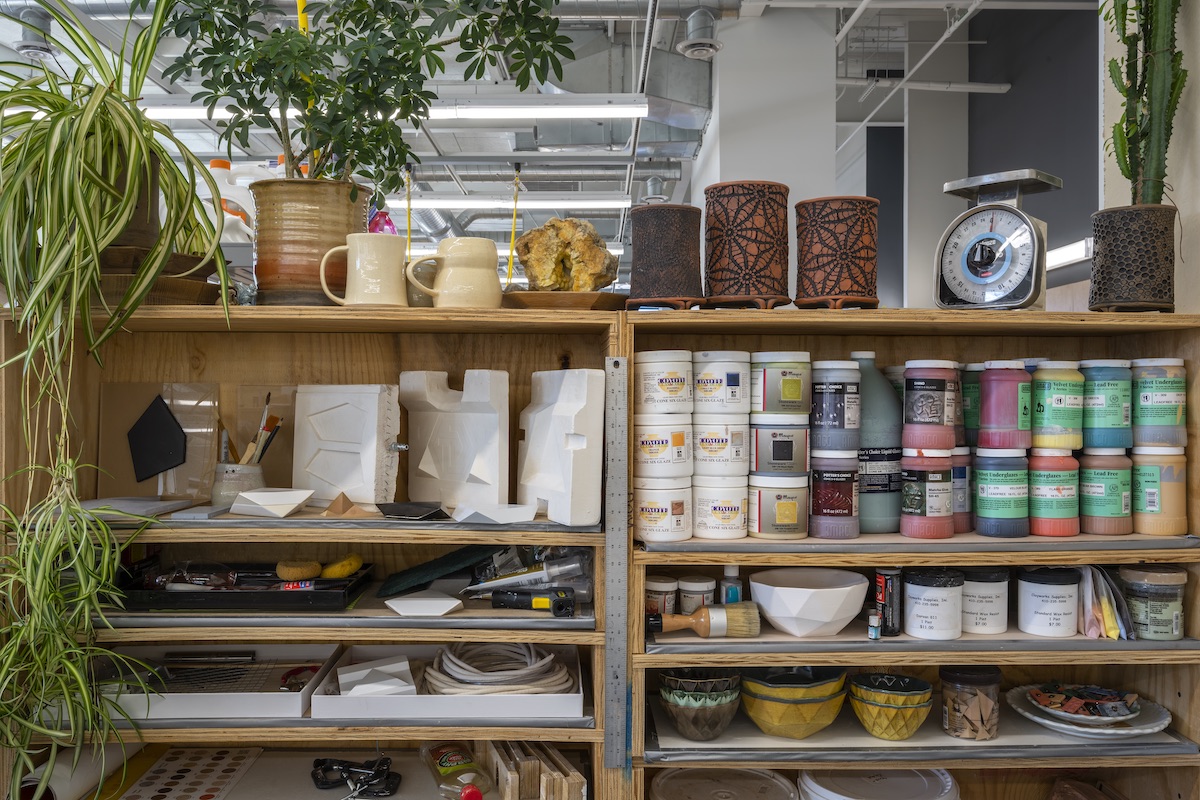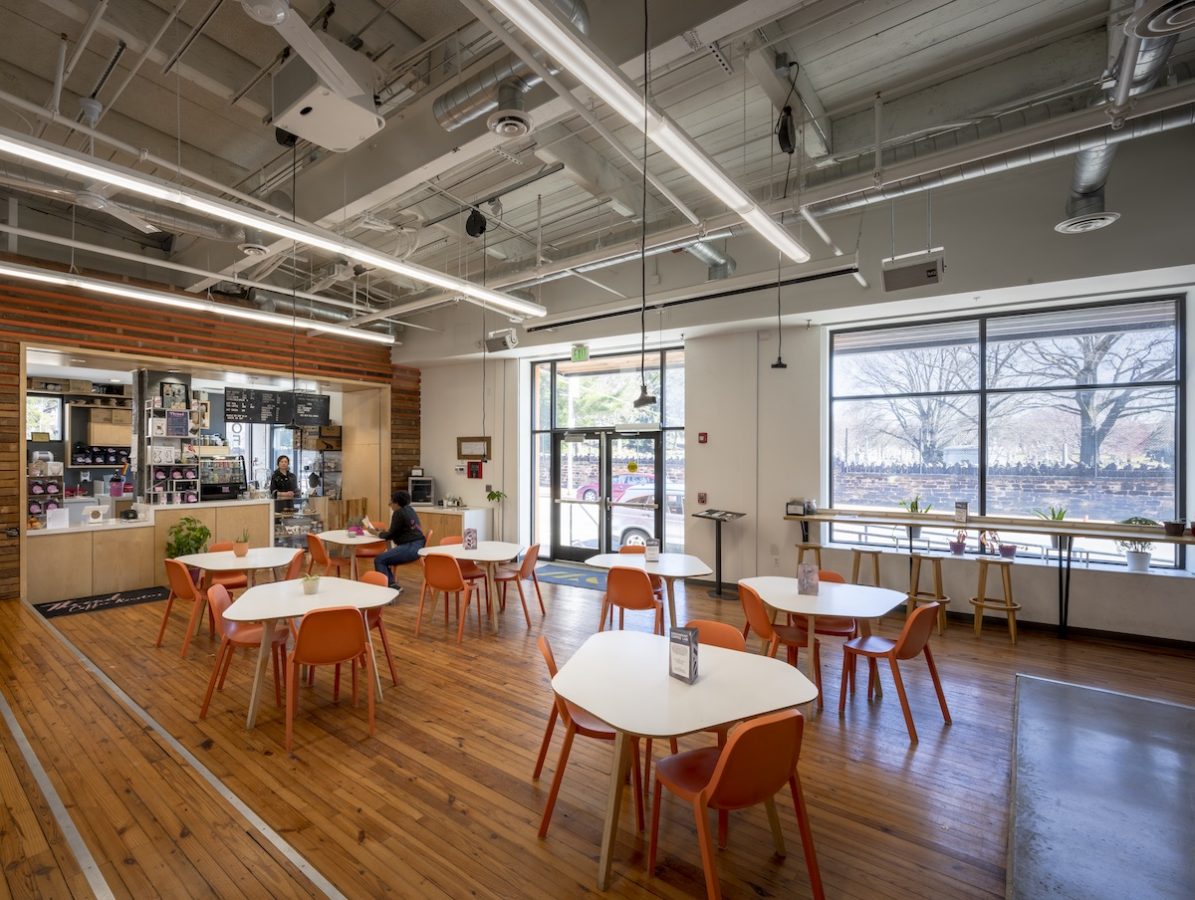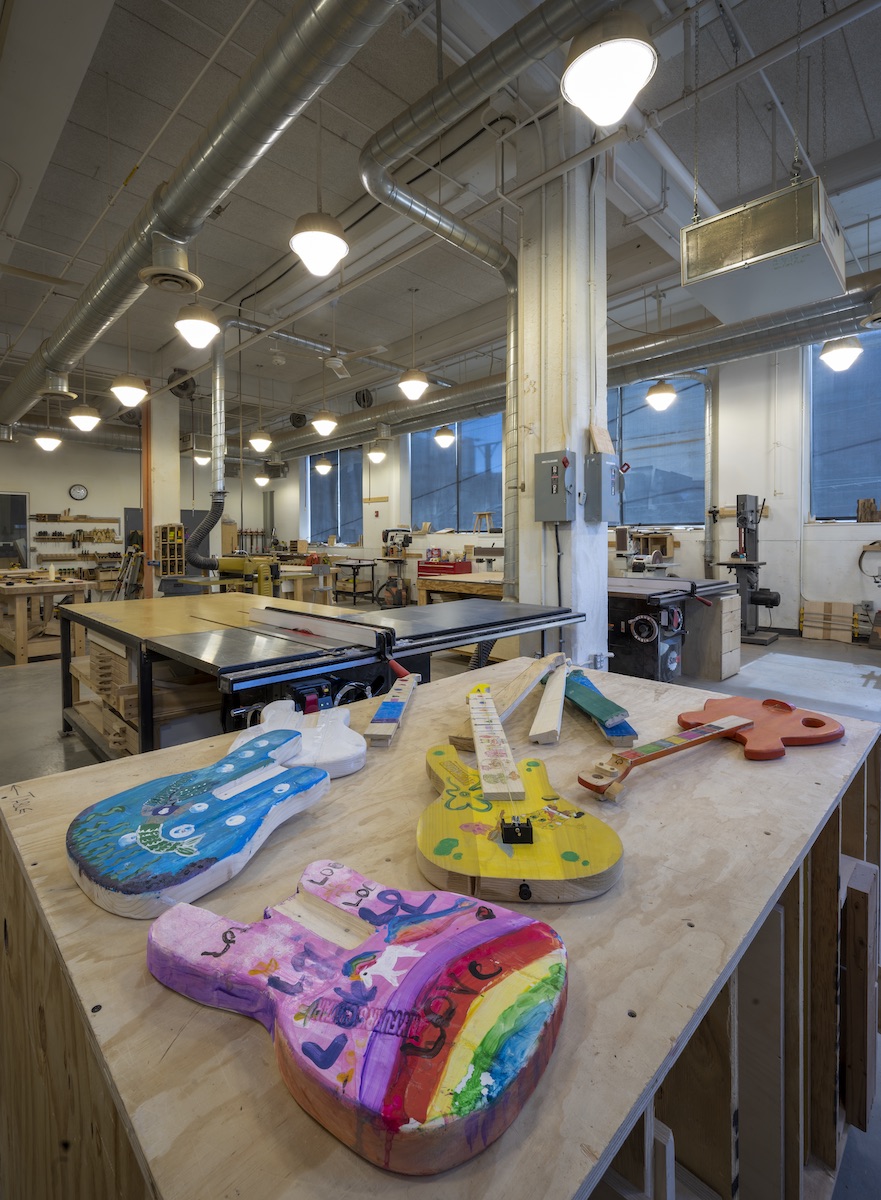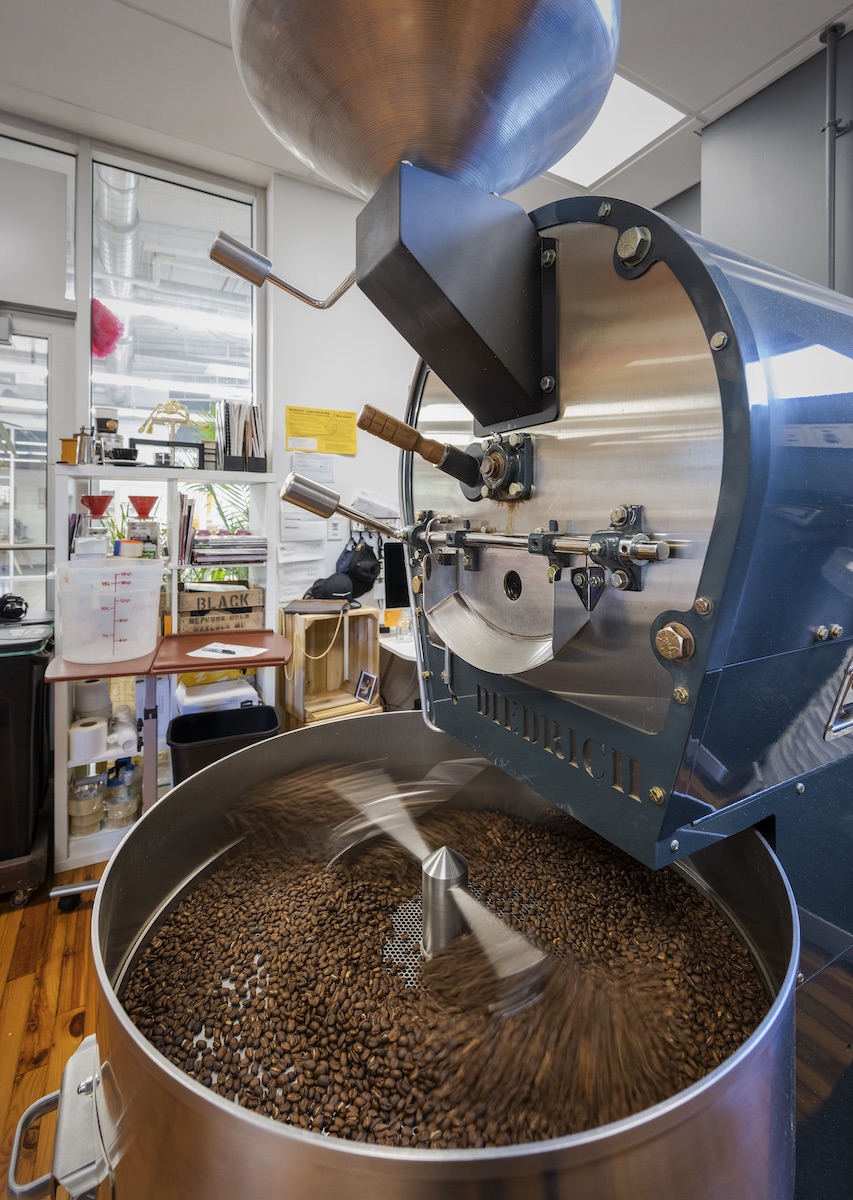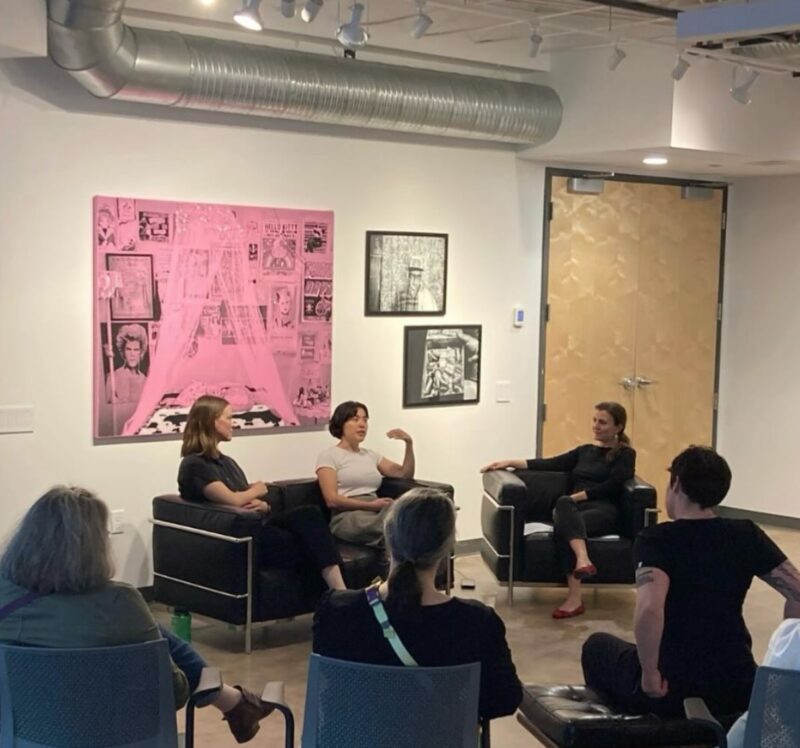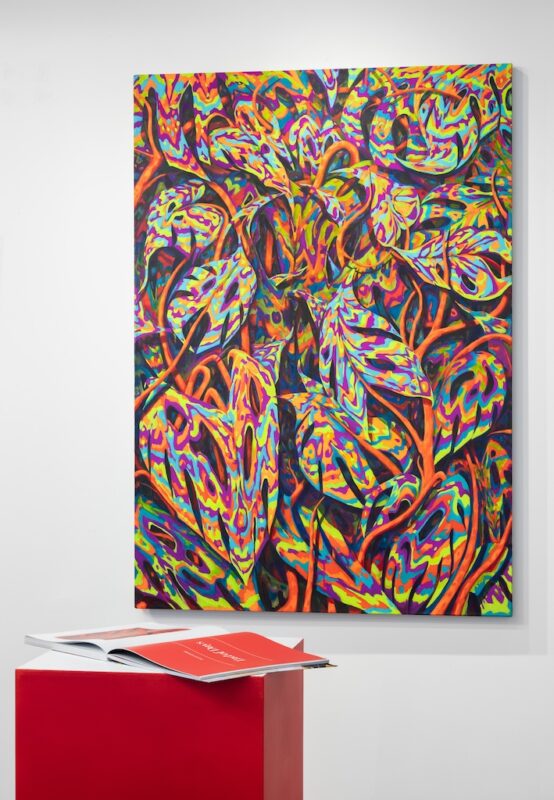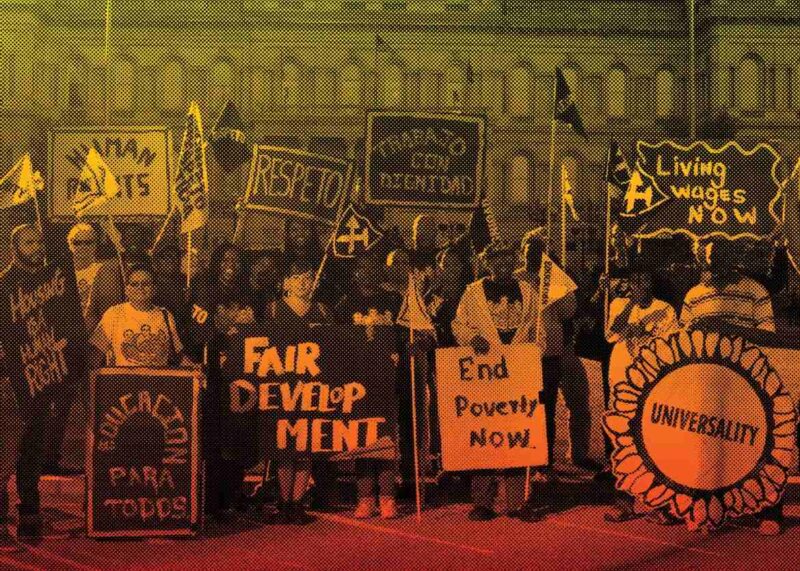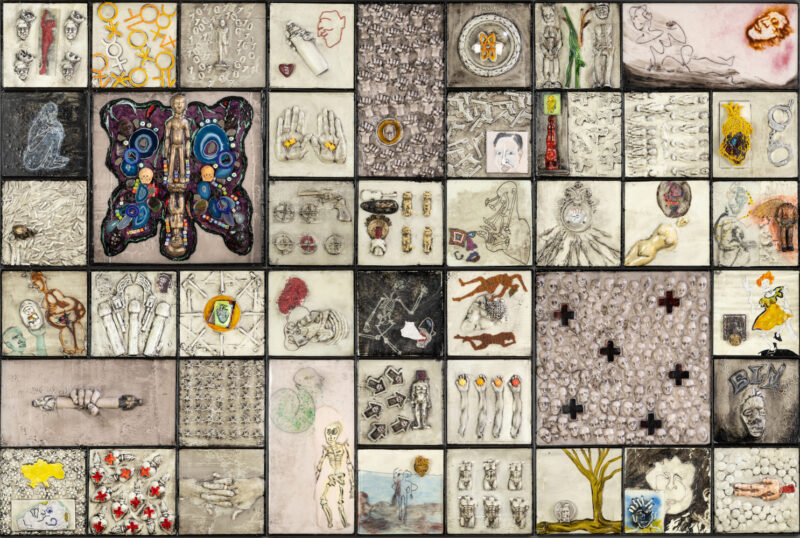From March to June, a giant box sat on the deck outside of Open Works, filling up each day with face shield components dropped off or mailed in by hundreds of people volunteering their time, energy, and 3D printers to help make personal protective equipment (PPE) during the COVID-19 pandemic. The parts were gathered and taken inside of the 3 1/2-year-old, 34,000-square-foot Greenmount West maker space where a squad of once-furloughed part-time employees assembled them into face shields that were then sent out to workers in desperate need.
“The first day that the box was out there and we were receiving parts, it got about halfway filled up,” said April Lewis, Open Works’ Membership Manager. “But a week later we were having to come out two or three times a day to empty the bin. There were just that many parts coming in.”
After Maryland’s stay-at-home orders went into place in mid-March, Open Works had to close its doors to its members and the community and furloughed its 21 part-time employees. The world felt weird and hopeless. But Executive Director Will Holman soon found a path forward. After reading about PPE supply concerns and how people in countries that had already endured the pandemic fabricated equipment with open-source designs, Holman realized that Open Works was in a unique position to help provide life-saving gear, specifically face shields, during the pandemic.
Holman found a Czech company, Prusa Printers, that had designed a 3D-printed headband face shield that was approved by the Centers for Disease Control and Prevention, and he used Facebook to put out a call for volunteers with access to 3D printers. “The Facebook post—and excuse the pun—went viral on social media,” Holman said. “By the end of the weekend we had signed up around 250 folks willing to contribute.”
